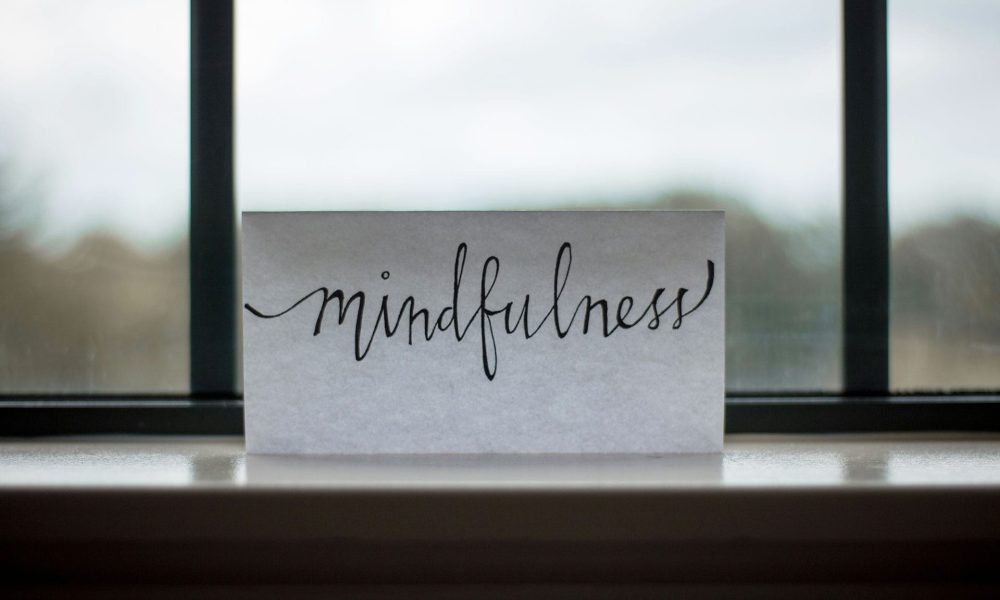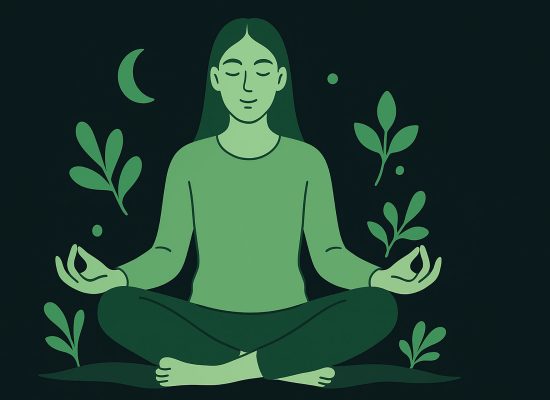This article extends its primary question to build a definition that answers a secondary question: what is mindfulness meditation? Additionally, this article provides an explanation of what the benefits of mindfulness are and explores different mindfulness definitions based on scientific research.
Table Of Content
- Mindfulness Definition: What is mindfulness in simple terms?
- Mindfulness Definition: What is mindfulness in psychology?
- Benefits of Mindfulness: What does mindfulness do for the body?
- Benefits of Mindfulness: Why is mindfulness important?
- What is mindfulness meditation and how can it become a habit?
- Mindfulness with Siddha Meditate
The habits of both mindfulness and meditation use your mind to perceive the things happening in and around your mind and body. While these shared traits make it seem like mindfulness and meditation are one and the same, they are actually different. Knowing the ways that they are different helps to explain the strength and purpose of combining them and how together these practices yield wonderful outcomes in your life.
Each of the practices in Siddha Meditate’s collection of mindfulness meditation classes are centered in the action and exploration of mindfulness meditation, allowing you to learn and practice the benefits of mindfulness in the safe and assuring mental space of meditation. These classes provide clarity and help you to build your own definition of the essential question of this article: “what is mindfulness?”
Mindfulness Definition: What is mindfulness in simple terms?
The definition of mindfulness: mindfulness is a moment in which you are aware of and able to accept your thoughts and emotions. This type of awareness and acceptance shuts down any thoughts of self-doubt that may arise in your practice of mindfulness. A mindful moment can be as short as a few seconds or as long as you would like it to be. Mindfulness can therefore be an attitude that you can carry with you wherever you go.
Mindfulness Definition: What is mindfulness in psychology?
Mindfulness has gained the attention of psychological research communities and organizations, who are asking questions about the ways that mindfulness changes and activates the brain. Their research has led to answers that support mindfulness as an amazing practice that helps you understand your brain better. An team of Indian psychological researchers found that a collection of 21 reputable and peer reviewed studies found that mindfulness produced 105 unique positive outcomes towards improved mental wellbeing, happiness, hope, grit, and empathy. Benefits of mindfulness was shown to improve the lives of medical and psychiatric patients in their appointments, to be enjoyable and helpful for children and teens, to enhance both romantic and familial relationships, and improve self-compassion.
Benefits of mindfulness has been proven, again and again, to improve mental health. University of Texas at Austin psychology professor, Dr. Kristin Neff and Harvard University psychology professor, Dr. Christopher Germer, found that mindfulness, “participants experienced significantly greater life satisfaction as well as less anxiety, depression, stress, and avoidance.” A team of Rhode Island based researchers used self-reported data to explore how college students understood their experience with mindfulness in a controlled study. One student reported that mindfulness allowed her to change her outlook. To her, mindfulness meant, “So, kind of just like taking yourself…like to slow down. I think that that was really cool and just something that like I guess I’ve never really focused on before.”
Benefits of Mindfulness: What does mindfulness do for the body?
There are clearly wonderful benefits of mindfulness in our brains. But what does it do for our bodies? Mindfulness helps us to feel better about ourselves because we build compassion for our body by getting to know it better. We are thinking about it in a kinder way which motivates us to prioritize taking better care of ourselves in all areas of our lives.
Self-compassion encourages us to take better care of our physical health by fueling our brains and bodies with the things that help us build long term health and happiness. Mindfulness meditation even allows you to accept and let go of pain. Siddha Meditate app offers a Breath and Posture Connection class, learn about how the mind body connection helps your body feel better in the present moment through deeper breath.

Benefits of Mindfulness: Why is mindfulness important?
Mindfulness is an essential tool in and out of practice because it rewires your brain to support itself beyond any one specific moment in time or headspace. A habit of mindfulness allows you to extend the mental health and wellbeing benefits of mindfulness in your life. One of the best ways to do this is to establish a routine of mindfulness meditation, which uses the mindset of mindfulness to center the controlled mental environment of meditation.
The benefits of both types of practice are brought together and supported in our class, Practicing Self Compassion. Instructor Amy Pattee Colvin uses the key meditative skill of breathwork to help you to learn and use the practice mindfulness within meditation as a framework for self-compassion.
What is mindfulness meditation and how can it become a habit?
Beginning a mindfulness meditation routine, like starting any healthy habit, begins with a step forward, with the first practice in a lifelong series of meditations. To create a pattern of mindfulness meditation, begin by selecting a guided mindfulness meditation from the Siddha Meditate app. Find a posture that feels comfortable, often seated is a great starting point and set an intention for your practice if this feels right in the moment. Next, choose a length of time that feels best for you and your schedule. When you are ready, simply hit play, close your eyes and the instructor will take it from there.
They will begin by briefly introducing themselves and explaining the goals of the practice. From there, the instructor may ask you to adjust your posture to better suit the class and its intentions. At this stage, they often instruct you to focus your attention: on their words, on your breath, on specific body parts, or even on what thoughts you are having. This focus begins the practice and helps you to build a connection to your body awareness and self-compassion. From here, the benefits will begin to take shape in your mind.
After your practice, a great strategy is to write journals about how you feel, about what practice gave you and even what the routine going forward will give you. Siddha Meditate offers a secure and private notes feature directly in our app which is a seamless way to add reflections after practice to your mediation process. As you write, consider what is mindfulness to you, and how it can make your life better. Starting your journey with this type of mindset can help you to carry it forward in your daily routine.

Mindfulness with Siddha Meditate
Mindfulness and meditation work better together. They use similar attributes, such as a focus on how the body feels, but are different in how you practice these similar goals. Mindfulness is flexible and can be a mindset that you bring to all areas of your life. Mindfulness meditation focuses on staying present in the moment, using a mindful mindset to guide the meditation. This approach helps people feel more grounded, reducing stress and improving focus by emphasizing the specific benefits of being fully aware and attentive. Knowing about the psychological benefits of mindfulness helps you to feel confident in the outcomes and motivated by the benefits of your practice.
Siddha Meditate app instructors use research about mindfulness to customize their lessons based on evidence and teach you about their findings and experiences with mindfulness meditation. Practicing mindfulness meditation begins with your first class and builds to help you experience benefits to your mental and physical health. Taking mindfulness meditation class today allows you to reach your long-term goals by helping you to develop a routine of mindfulness meditation that brings focus and self-compassion to every area of your life.







